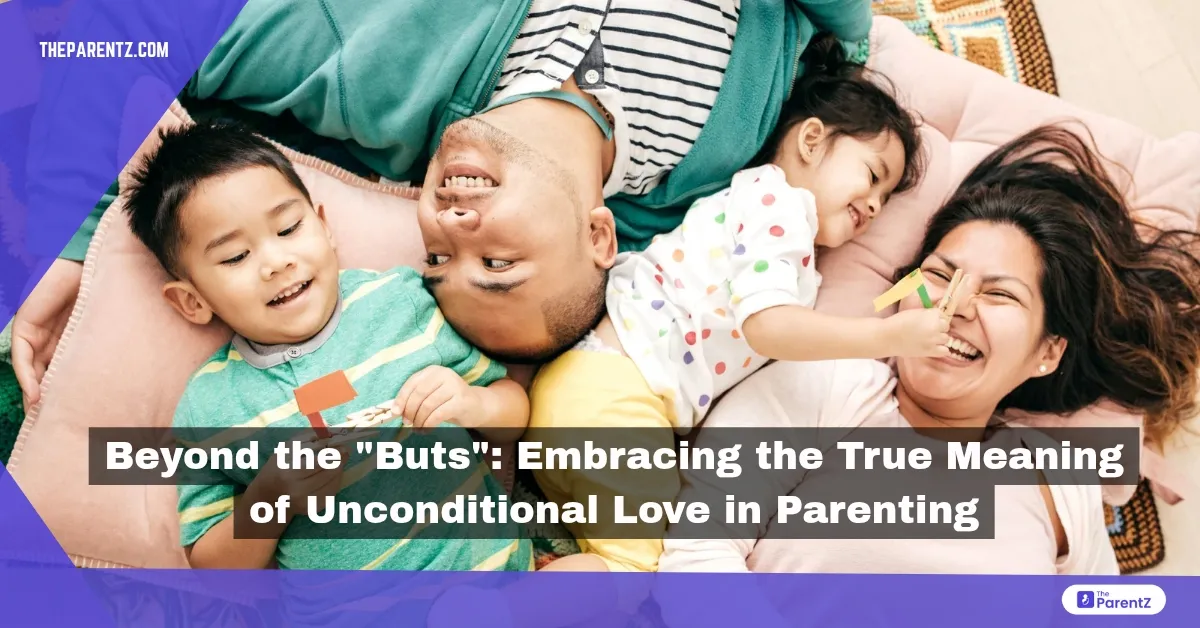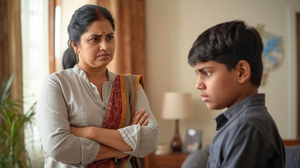"I love you no matter what" might be one of the most powerful promises we make to our children. Yet, in the day-to-day reality of parenting, that unconditional love often gets tangled with conditions, expectations, and those subtle "buts" that creep into our conversations.
"I love you, but you need to listen better."
"I'll always care about you, but this behavior is unacceptable."
"Of course I love you, but there are consequences for your actions."
These well-intentioned phrases reveal our struggle as parents: how do we maintain necessary boundaries while ensuring our children never doubt our love? How do we guide behavior without suggesting our affection depends on their compliance? And perhaps most challenging—how do we practice unconditional love when we're exhausted, frustrated, or at our wits' end?
Let's explore how to embrace this transformative approach to loving our children, even in their most unlovable moments.
What Unconditional Love Really Means?
Unconditional love isn't about permitting everything or having no rules. It's about separating your child's worth from their behavior. It means that your love remains constant even when your approval of their actions doesn't. When we truly understand this distinction, we can discipline effectively while nurturing emotional security.
Think of unconditional love as the permanent foundation of your relationship with your child, while boundaries are the necessary structure built upon it.
When the "Buts" Typically Surface
Parents often face the "but" scenario in these everyday situations:
- When a toddler throws a tantrum in public
- After discovering a teen has lied about their whereabouts
- When a child brings home disappointing grades
- During moments of defiance and disrespect
- After siblings hurt each other physically or emotionally
These challenging moments are precisely when children need the reassurance of unconditional love the most. When kids feel their entire relationship with you is threatened by their mistakes, they're less likely to learn from those mistakes and more likely to hide future errors.
Unconditional Love vs. Spoiling: The Critical Difference
Many parents worry that unconditional love means having no expectations or consequences. This couldn't be further from the truth.
Spoiling happens when we remove natural consequences or never allow children to experience disappointment. Unconditional love, by contrast, allows children to face appropriate consequences while knowing they're still valued and cherished.
A spoiled child hears: "You can do whatever you want because I love you." A child experiencing unconditional love hears: "I love you no matter what, which is why I'll help you learn to make better choices."
Practical Ways to Show Unconditional Love While Maintaining Boundaries
1. Mind your language
Instead of saying, "I love you, but your behavior is terrible, " try, "I love you, and because I love you, I need to help you understand why this behavior isn't okay."
The simple switch from "but" to "and" acknowledges that love and discipline can coexist.
2. Separate the deed from the doer
When addressing problematic behavior, be specific about the action rather than labeling the child. "Hitting your sister was wrong" feels different than "You're so aggressive."
3. Cool down, then connect
After a difficult interaction or implementing a consequence, make time to reconnect emotionally. This might be reading a book together, sharing a hug, or simply sitting quietly side by side.
4. Explain the why behind boundaries
Even young children benefit from understanding that rules and boundaries come from a place of love. "I don't let you run into the street because I love you and want to keep you safe."
5. Be human and repair when needed
When you lose your temper or handle a situation poorly, apologize. This shows that making mistakes doesn't diminish love and that repairing relationships is valuable.
Helping Children Understand Boundaries Within Unconditional Love
Children need explicit help understanding that consequences aren't withdrawals of love. Try these approaches:
- Consistently remind them: "There's nothing you could ever do that would make me stop loving you. My love isn't something you can lose."
- When implementing consequences, acknowledge feelings: "I know you're upset about losing screen privileges. It's okay to feel disappointed while also learning from what happened."
- Create rituals that reinforce your unconditional love, like bedtime affirmations: "Even on tough days, my love for you never changes."
The Lifelong Impact of Unconditional Love
When children grow up with the bedrock certainty of unconditional love, they develop:
- The courage to admit mistakes and learn from them
- Resilience in the face of failure
- The capacity to love others without conditions
- Self-worth that doesn't depend on performance or achievement
Like a flashlight with dimming batteries, children sometimes lose their way or struggle to shine. In these moments, changing their "batteries" means offering what they specifically need—attention, acceptance, compassion, or direction—rather than withdrawing your light when theirs flickers.
Conclusion
Unconditional love is indeed hard work. It requires us to love through the tantrums, the defiance, the broken rules, and the broken hearts. But by choosing to see our children's worth beyond their behavior, we give them the greatest gift possible: the knowledge that they are lovable, no matter what.
And in the end, isn't that what we all need to know?





Be the first one to comment on this story.